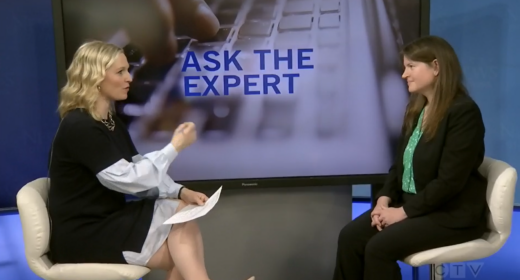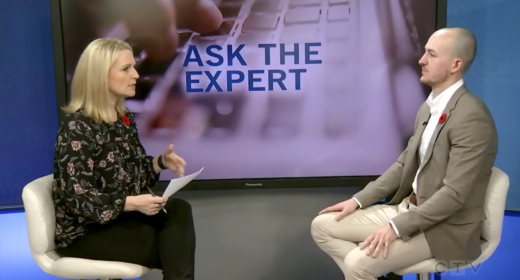Two decisions on the deductibility of long term disability benefits, Vanderkop v. Personal Insurance Co. of Canada [2009] O.J. No. 2616 (C.A.) and Cromwell v. Liberty Mutual Insurance [2008] O.J. No. 276 (Sup. Ct.) have left a number of lingering questions for Statutory Accident Benefits insurers. In particular, when is a lump sum amount received by an insured in full and final settlement of their LTD claim or otherwise, deductible as an offset for future income replacement benefits (“IRBs”) or recoverable for IRBs already paid to an insured. And, more importantly, what must be done and when, in order to collect on an overpayment or to preserve future deductions. While the answers remain largely a matter of interpretation, there are steps that can be taken in seeking to preserve the LTD offset. A list of practical considerations for both counsel and adjusters in this regard is set out at the conclusion of this article.
SABS and Deductibility of Payments for Loss of Income
Prior to September 2010 and at the time of the Vanderkop and Cromwelldecisions, section 7(1)(1)(i) and (ii) of the SABS, permitted an insurer to reduce the amount of an IRB owed to an insured by net weekly payments for loss of income “received by” an insured. The relevant provision was as follows:
s.7(1) Despite subsection 6(1) and (5), subject to subsection 6(2), the weekly amount of an income replacement payable to a person shall be the lesser of the following amounts:
- The amount determined under subsection 6(1), reduced by,
- net weekly payments for loss of income that are being received by the person as a result of the accident under the laws of any jurisdiction or under any income continuation benefit plan
Despite a myriad of changes to the SABS, effective September 1, 2010, an insurer’s statutory entitlement to reduce IRBs by payments received for loss of income has remained largely the same and is now set out in section 4(1)(a)(i).
Similarly, the process by which an insurer can recover an overpayment has remained similar. Pursuant to section 52 of the current SABS, in order to collect on an overpayment, an insurer must: give notice to the person of the amount that is required to be repaid; and if the insurer intends to collect the amount by reducing future payments of IRBs or caregiving benefits (to a maximum of 20%), the insured must be notified of that. Absent fraud or willful misrepresentation, an insurer is still strictly limited to recovering overpayments for 12 months from the date the amount was paid to the insured.
Cromwell v. Liberty Mutual Insurance [2008] O.J. No. 276 (Sup. Ct.)
This case involved a motion for summary judgment brought by the plaintiff, Ms. Cromwell, to compel her accident benefits carrier, Liberty Mutual Insurance (“Liberty Mutual”), to pay her IRBs.
On August 13, 1998, the plaintiff was injured in a motor vehicle accident in which she allegedly sustained catastrophic injuries. At the time of the accident, she was insured for accident benefits with Liberty Mutual and for LTD benefits with Sun Life Assurance Company of Canada (“Sun Life”). Following the accident, the plaintiff’s claims for various accident benefits were denied by Liberty Mutual. IRBs, in particular, were paid, terminated and then reinstated on a number of occasions. The plaintiff commenced litigation with respect to the outstanding accident benefits. She also claimed damages for bad faith and mental distress. On May 29, 2003, Liberty Mutual paid the plaintiff a lump sum of $47,971 for outstanding IRB benefits. That same day, Liberty Mutual wrote to the plaintiff and took the position that the LTD benefits available to the plaintiff under the Sun Life policy were collateral benefits, which resulted in an overpayment.
The plaintiff had applied for LTD benefits from Sun Life shortly following the accident. Sun Life had denied her application. She subsequently commenced a separate action against Sun Life for breach of contract and for punitive and aggravated damages. On July 4, 2003 and following discoveries, Sun Life provided the plaintiff with an advance payment of $78,485 for unpaid LTD benefits. On December 12, 2003, the plaintiff settled her LTD claim with Sun Life for $15,000 in benefits that were deemed taxable and a lump sum amount of $160,000 which was designated as non-taxable. As a result of the settlement, Sun Life received a full and final Release of all claims, including, past and future benefits as well as the claims for punitive and aggravated damages.
Following the LTD settlement on July 4, 2003, Liberty Mutual wrote to the plaintiff advising that it was aware of the advance payment that had been made by Sun Life and indicating that it was taking the position that it was entitled to deduct the LTD payments from the IRBs as permitted in section 7 of the SABS. The letter also stated that Liberty Mutual intended to recoup all IRBs that it had previously paid. Three days later, Liberty Mutual sent a follow-up letter to the plaintiff alleging an overpayment of $68,123.87 and indicating that the sum would be recouped by deducting 20% of the amount of future IRB payments. Liberty Mutual also advised that it was entitled to reduce the value of future IRBs by deducting the value of the future monthly payments until the totality of the $160,000 was paid. The plaintiff brought an action against Liberty Mutual seeking to avoid the claim for the overpayment and moved for summary judgment to compel payment from Liberty Mutual of her IRBs.
Lofchik J. heard the motion and held that the $160,000 non-taxable lump sum paid by Sun Life to the plaintiff insured in full and final settlement of her LTD claim was not deductible for Liberty Mutual because it could not be said that it was paid “pursuant to” the LTD policy.
Following the reasoning set by the Supreme Court in Tsiapralis v. Canada [2005] 1 S.C.R. 113, a tax decision, Lofchik J. reasoned that Sun Life was not obligated under the terms of the policy to pay a lump sum with respect to future payments nor was there evidence before the Court that the lump sum had been paid taking into account the future value of those payments. Instead, it appeared that the settlement amount of $160,000 had been arrived at on the basis of the authority of the adjuster authorizing settlement. It was also emphasized that the Release delivered as a result of the LTD settlement released claims against Sun Life for mental distress and aggravated and punitive damages.
With respect to past benefits, it was conceded by the plaintiff that the LTD amounts were deductible for Liberty Mutual. This applied to the $15,000 in arrears in the LTD settlement which had been designated as taxable as well as the earlier lump sum amount of $78,485.00 that had been paid following discoveries by Sun Life.
The question then was whether Liberty Mutual could recover on an overpayment arising out of the payment of past LTD benefits, which were deductible. Section 47 of the SABS in force at the time governed overpayments and the notice requirement. Lofchik J, held that the May 29, 2003 letter sent by Sun Life did not comply with the notice requirements as it failed to specify the amount being claimed. The July 2003 letter did, however, specify the amount and notice of the overpayment could be designated as of that date. Based on Lofchik J’s interpretation of section 47(2), Liberty Mutual was entitled to recover for all IRBs paid within 12 months of the date of the payment for which proper notice had been given. This amount recoverable was not capped at a maximum of 12 months of IRBs. Consequently, Liberty Mutual was entitled to recover the lump sum arrears of $47,971 that it had paid to the plaintiff in May 2003 for which notice had been given in July 2003.
Vanderkop v. Personal Insurance Co. of Canada [2008] O.J. No. 1937 (Sup. Ct.)
The Vanderkop decision similarly addresses an accident benefits insurer’s ability to offset payments owed to an insured for IRBs by amounts paid to an insured by their LTD carrier in a lump sum.
The plaintiff, Ms. Vanderkop, a 44-year old school teacher, was injured in a motor vehicle accident on February 17, 1997. She was unable to return to work as a result of her injuries and was entitled to IRBs from her accident benefits carrier, the Personal Insurance Co. (“The Personal”). At the time of the accident, she had an LTD policy with the Manufacturers Life Insurance Company (“Manulife”). Manulife denied her initial application for LTD benefits. The plaintiff commenced litigation against Manulife in September 1999 to compel the payment of past, present and future LTD benefits and for punitive and aggravated damages.
A private mediation was arranged for November 27, 2002. It included the tort defendant, as well as The Personal and Manulife. Although The Personal had denied the plaintiff’s entitlement to IRBs for a period, the insurer subsequently reinstated the benefit and as of the date of the mediation was paying IRBs on ongoing basis. Conversely, Manulife had not paid and was not paying LTD benefits at the time of the mediation. During negotiations, the issue of coordination of benefits was at the forefront as The Personal claimed that it was entitled to reduce the payment of IRBs to the plaintiff by an amount equal to the LTD benefits payable. In the end, the plaintiff settled her entitlement to past, present and future LTD benefits and as found by the trial judge “presumably” also the claim for aggravated and punitive damages brought against Manulife. The settlement amount was a lump sum of $57,500. At the time of the mediation, the present value of Ms. Vanderkop’s past, present and future LTD benefits, were in excess of $700,000.
During the mediation, the plaintiff also purported to settle all accident benefits claims against The Personal for $10,000. The settlement was, however, never finalized. The Insurance Act permitted the plaintiff to void the settlement with The Personal during the “cooling off” period; she availed herself of that right. While the plaintiff later refused to carry out the terms of the settlement she had entered into with Manulife, the settlement was imposed by Court order.
Following the settlement of her LTD claim at mediation and despite the fact the plaintiff remained medically entitled to IRBs, The Personal stopped paying the benefits. The sole basis for doing so was the LTD settlement with Manulife. At trial, The Personal argued that is was entitled to deduct the LTD settlement amount ($57,500) from the amount that it owed Ms. Vanderkop for IRBs.
Lofchik J. held that the $57,500 lump sum LTD settlement amount was not recoverable for Personal. Relying again on the Supreme Court’s decision in Tsiapralis v. Canada, Lofchik J. found that the lump sum payment did not constitute a “payment for loss of income”; rather it represented a lump sum payment arrived at after a law suit and negotiated as a compromise. Moreover, it was reiterated that there was “no allocation of the lump sum settlement as among the various heads of damage claimed.”
Court of Appeal Decision in Vanderkop
The facts stated by the Court were brief. It is notable, however, that the Court of Appeal characterized the Manulife settlement as in reference to “past, present, and future benefits under the Manulife Policy for $57,500” and not “presumably also in relation to the claim against Manulife for aggravated and punitive damages” as Lofchik J. had found. Secondly, the Court highlighted that at no time prior to settlement did The Personal “tell Ms.Vanderkop that it would take the position that it was entitled to reduce future payments of IRBS, to the point of extinguishment, by virtue of the fact of her settlement with Manulife.”
Most of this brief decision was focused on whether The Personal could deduct for “hypothetical LTD benefits” not received by the plaintiff, but argued by The Personal to be available to her had she litigated with Manulife. In addressing this issue, the Court was unequivocal: an insured has no obligation to litigate with their collateral benefits carrier for the benefit of their accident benefits carrier. As Manulife had denied her claim for LTD benefits, these benefits were not “available” to the plaintiff.
On the issue of the deductibility of the $57,500 actually received by the plaintiff in settlement of her LTD claim, the focus of this article, the Court noted only as follows:
[W]e wish to note Ms. Vanderkop’s concession that Personal could have recouped the $57,500 paid to her by Manulife, had it followed the necessary statutory procedures. That is, she conceded that after the mediation, had Personal paid Ms. Vanderkop the IRBs to which she was entitled, it could have deducted the $57,500 from those ongoing payments in the manner permitted by the legislation. It chose not to.
Little concrete guidance can be drawn from the Court’s comments as they are premised on a concession among the parties. However, it is notable that in result, the concession noted by the Court represents a rejection of the reasoning and the conclusion arrived at by Lofchik J. in both Cromwell and Vanderkop that the lump sum settlement amounts received by a plaintiff (as opposed to hypothetical benefits) were not deductible because they represented a negotiated compromise. Arguably, in highlighting the above concession, the Court of Appeal signaled that LTD settlement amounts, or amounts received by a plaintiff as a lump sum or otherwise, are generally deductible for an SABS carrier, assuming proper statutory procedures are followed.
Furthermore, in characterizing the lump sum settlement of $57,500 as pertaining to past, present and future benefits (and not “presumably” punitive and aggravated damages as Lofchik J. had found) it appears that the Court of Appeal left for another day the issue of whether and if so, how much of a lump sum settlement is deductible where an undifferentiated portion of the settlement is attributable to the payment of punitive or aggravated damages.
Practical Steps for Insurer Counsel and Adjusters to Protect the LTD Offset
While the legal landscape in this area remains unclear, the following are some practical steps for both counsel and adjusters working for accident benefit insurers to consider. Ultimately, the strategic considerations on any individual file will differ.
- Find out early whether the insured has an LTD policy, what the terms of the policy are, whether the insured has applied for the benefits and whether benefits are being paid;
- If an LTD policy exists, consider formally notifying the insured early and in writing of the SABS carrier’s entitlement to deduct collateral benefits, including LTD benefits;
- Consider the existence of the LTD policy before making any lump sum payments to an insured in the accident benefits file. Timing of any such payments ought to be considered where an LTD policy exists, as absent fraud or misrepresentation, an insurer can only go back 12 calendar months to collect an overpayment. The amount recoverable for an overpayment during that period, is not however capped to the total of 12 months of benefits (Cromwell);
- Monitor the status of the LTD file. If LTD benefits are terminated, find out the basis for the termination and whether the insured has commenced litigation. If litigation has been commenced, consider obtaining a copy of the Statement of Claim and requesting the LTD file as a whole;
- Where possible, work towards a global mediation that includes the LTD carrier;
- If a mediation or settlement of an LTD claim is looming, a SABS carrier should consider taking steps to put the insured on notice of its position in the event of a settlement of the LTD claim. The following ought to be considered in this regard:
- In many cases and depending on the amounts at issue, it may be prudent to alert the insured in writing and prior to any settlement with their LTD carrier the SABS carrier will take the position that it is entitled to reduce future payments for IRBs or deduct for amounts already paid from the amount of the LTD settlement, possibly to the point of extinguishing the LTD settlement;
- Consider requesting that any LTD settlement agreement clearly break down any and all categories for which settlement funds are being paid (past benefits, future benefits, interest, costs and aggravated and punitive damages, if they are at issue);
- Under some circumstances, it may also be prudent to advise the insured in writing and before any settlement of the LTD claim, that if no breakdown is provided, it will be presumed that the entirety of the settlement amount is attributable to past and future benefits, which are deductible;
- Consider insisting that any amounts attributed under any category of benefits be reasonable on the merits of the file and supported in the case law; and
- In some cases it may also be prudent to consider requesting the opportunity to review the settlement agreement and the breakdown, before any settlement is finalized, so that the insurer can provide its position.
- If a global mediation is achieved, consider advancing joint LTD/SABS offers. If settlement is obtained in the litigation process, it is likely prudent to dispense with the Settlement Disclosure Notice to avoid the “cooling off period”;
- If the insured settles the LTD file and regardless of whether the foregoing has been done, put the insured on written notice that the settlement amounts are deductible and/or recoverable for the SABS insurer.
- The insured should be advised in writing how the benefits received affect the calculation for future IRB benefits;
- If the receipt of benefits results in an overpayment, the requirements for written notice in section 52 of the new SABS must be complied with. In particular, the notice must specify the amount that needs to be repaid. If part or all of the overpayment is to be collected from future payments for IRBs or caregiving payments, the insured must be advised that the insurer intends to collect on the overpayment by reducing future payments by a maximum of 20%.



